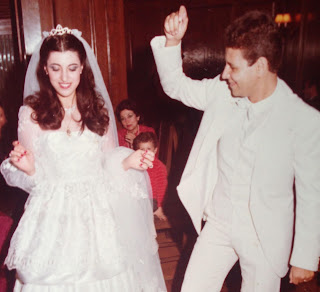Minyans
One could pitch Minya-born Ahmed Adaweya and shababi composer Omar El Shariyi as twin pivotal figures, signaling a sharp turn in Egyptian popular music. Not right or left, but down. As in from high to low. As in, GET down.
June 26, 1945. In Minya (المنيا), a small town 150 miles south of Cairo straddling the Nile, Ahmed Muhammad Morsi Al-Adawi is born into a livestock merchant's family. The Minya Governorate's storied fertility (the region supplied the world cotton when the United States plunged into Civil War) extends to the Al-Adawis: Ahmed arrives as the 13th of what will be 14 total children.
In that same decade, the Minya Governorate provides Egypt with the future First Lady Suzanne Mubarak (b. 1941) and the great blind film, TV, and pop composer Omar El Shariyi (b. 1948). Ahmed and Omar never collaborate, despite their proximity in age and geographical origin. Omar, whose father is the Mayor of the neighboring township Samalut, is of a higher class and relocates to Cairo at age five. But both artists later enjoy mass appeal beyond the official cultural strictures. One could pitch them as twin pivotal figures, signaling a sharp turn in Egyptian popular music. Not right or left, but down. As in from high to low. As in, get down.
Ahmed achieves fame through a facility with the mawwal, a popular vocal genre, everyman lyrics that are poetically and politically charged ("You let go of Al-Aqsa Mosque, and I’ll let go of the stones"), and one of the most soulful voices ever to level-pop a microphone. Omar cobbles together a steady career of "switched-on" Oum Kalthoum & her contemporaries, soundtracks for film and TV soap operas, and the shabibi group Al-Asdiqa, or Friends, who release three albums across three decades, launching the careers of all three of its singers, most notably Slam! artists Ala Abdel Khaleq and Hanan. Ahmed, Omar, and the entire Slam! family owe much of their success to the invention and ultimate ubiquity of the cassette tape.
(Listen to "Al Falaki" from Al-Asdiqa's 1980 cassette Hanghani)
Minya produced a dozen other 20th Century notables, including a pioneering feminist, an anti-nationalist surrealism recruit, a couple of filmmakers, and a handful of prominent Coptic scholars and patriarchs. Half of Minya's residents are Coptic Christians compared to the assumptive five to 20 percent throughout Egypt. Not far from Samalut lies the Monastery of the Virgin Mary at Gebel el-Teir, a Christian pilgrimage destination.
How much influence did the culture and economics of the so-called "Bride of Upper Egypt" impress upon young Ahmed? While the Nile divided Minya's rich from poor and ancient from modern, the town and Governorate were home to a diverse community stretching centuries into the past, including Greeks and Armenians. However, both groups abandon the country en mass in the late 1950s and '60s during Egypt's hyper-nationalist post-revolution era. Father Al-Adawi relocates the clan to Cairo around the same time.
Citing this interview, American scholar Andrew Simon notes that, before leaving Minya, Ahmed actively listens to Egyptian tarab's holy trinity: Mohamed Abdel Wahab, Farid El Atrache, and Abdel Halim Hafez. According to this episode of El Dahih, which cites an interview in Radio & Television Magazine from 2005, Adaweya began singing mawawil and other things he'd heard in cafes and develops a habit of sneaking out of school and home to crash weddings so he can watch and hear the singers.
A mawwal is sung folk poetry that often includes improvisation in the Arabic scales or modes known as the maqamat. Generally speaking, the mawwal is less significant an ingredient than others in the cultural identities of artists like Wahab, El Atrache, or Hafez. But it's integral to Ahmed's identity as an artist, in part because he sang so many of them (at least four volumes of his mawawil were released on cassette). The improvisational impulse in mawwal, as we'll see a bit later, informs how Ahmed directs his musicians.







Comments
Post a Comment